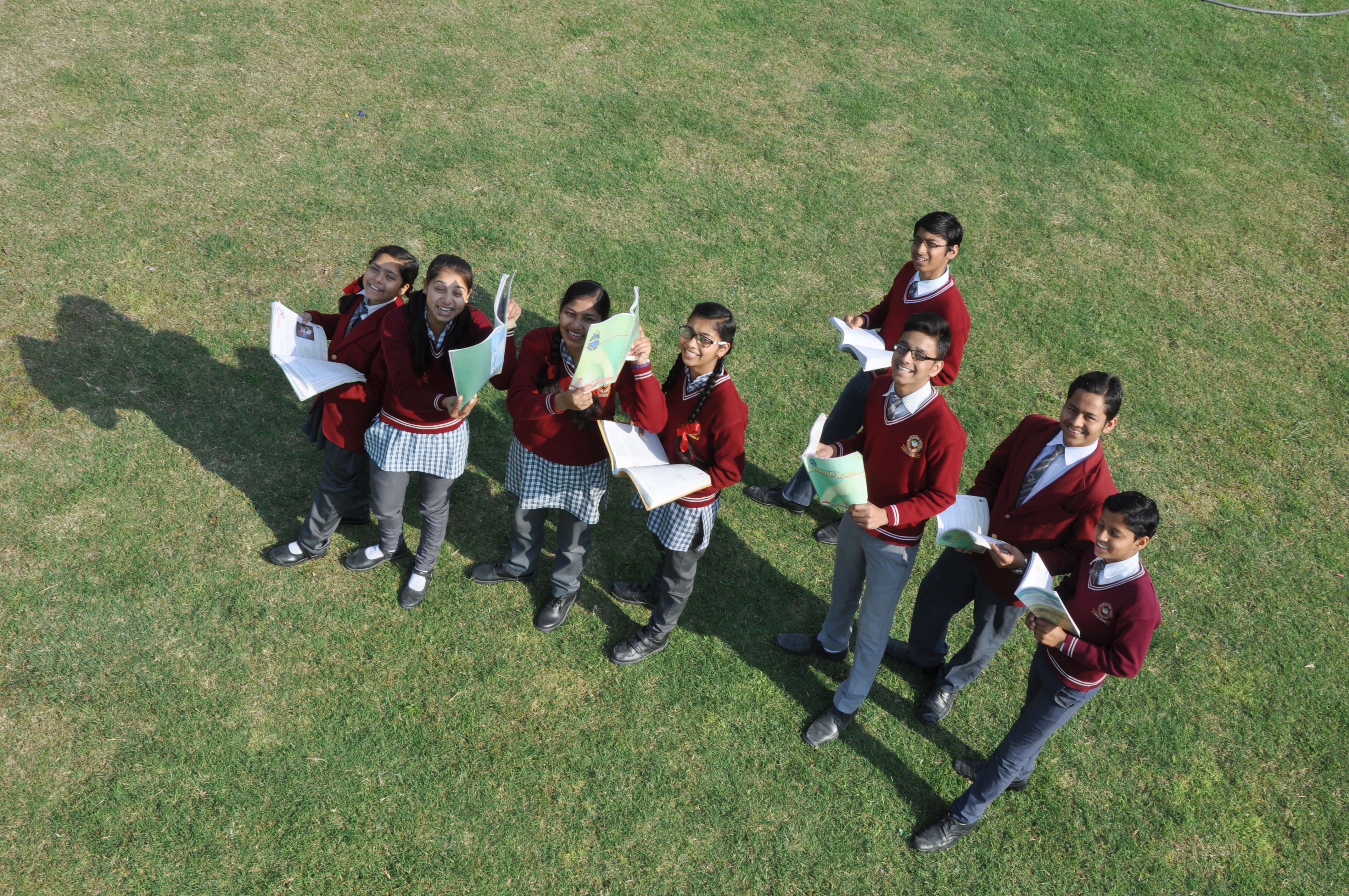Within English, pupils work on the four areas of Reading, Writing, Speaking and Listening. The fundamentals of Reading and Writing are continually re-visited through the teaching of grammar and spelling, through literary analysis, and through writing pieces which require them to use different styles and registers. There is also a strong emphasis on oral work throughout the English curriculum and pupils are taught to communicate with clarity, confidence and purpose in a variety of different forums. They are also taught and encouraged to use ICT effectively to complement their work within English.
With English Literature it is our policy to deepen each pupil’s understanding of texts by placing them in a wider context. Pupils are expected to undertake research concerning a text’s historical, generic and critical background – thereby gaining a better understanding of the moral and social issues within the novel, play or poem. We therefore encourage pupils to use the school library, local libraries, DVDs and the internet for background study, often setting them an individual topic to research and present.
The English Faculty is also keen to offer pupils a range of extra-curricular activities. There is a film club and a book club. Theatre trips are frequently organised throughout the academic year, as are trips to lectures, museums and other events. We also invite visiting theatre groups and authors. The English Society organises meetings, trips and social events, which are held every half term. Guest speakers have included published authors, academics and examiners, and the pupils have, in the past, organised a number of workshops, quizzes and dinners.
In English we therefore aim to develop creativity whilst equipping each pupil with the tools to express him or herself appropriately, accurately and confidently. We provide a positive and pleasant environment that promotes critical analysis, communication and the consideration of the views of others through the use of texts and class discussion.
The Faculty currently consists of seven full-time and one part-time English teachers. BMS also employs members of staff to support pupils with Special Needs (mainly dyslexia).
The Faculty has its own designated area within the school, with eight classrooms, equipped with ceiling-mounted projectors, and a faculty/seminar room used for some sixth form classes.
We also have on our doorstep the BMS Resources Centre. This is run by a professional librarian who keeps the library frequently replenished with up-to-date children’s and adult fiction as well as non-fiction texts, newspapers and magazines.
In KS3 we balance the nurturing of creativity and literary sensitivity with the development of written accuracy and appropriateness of register over a wide variety of tasks. Our units of work include Shakespeare, Poetry, Non-fiction, Pre-1914 prose, Creative writing as well Contemporary novels and drama. We operate a spiral curriculum in which we are constantly revisiting skills at an increasingly sophisticated level, whilst teaching new skills and vocabulary which will prepare our students for the demands of GCSE.
In Year 7 and Year 8, common outputs, such as an essay, newspaper article or presentation, count towards the end of year result. Five written outputs are used to calculate a score out of 50 which is then added to the exam score out of 50 to generate a percentage.
In Year 9 pupils sit a Language and Literature exam at the end of the academic year.
- Book Club – this weekly lunchtime club is held in our seminar room. The pupils discuss books they have enjoyed, engage in group reading of particular texts and enjoy quizzes and book craft activities.
All students in Year 11 take I/GCSEs in English Literature (Eduqas) and English Language (Edexcel); most groups pursue an integrated course with a single teacher. Seven lessons are scheduled in the two week cycle in Year 10, with eight lessons in Year 11. Certain topics/skills should be covered in Year 10 in preparation for internal exams, but otherwise teachers have freedom to choose texts and organise the components of the course across five terms to suit the needs of their groups. The Literature exam requires students to study four texts – two plays (including a Shakespeare play), a novel and a collection of poems. Responses to Unseen poetry are also assessed.
- Support – we offer a weekly drop-in for Year 11 students who wish to pursue questions or concerns outside of the classroom.
- Theatre trips – wherever possible we take students to see live performances of the plays they are studying.
- Theatre trips – wherever possible we take students to see live performances of the plays they are studying.
- Theatre trips – wherever possible we take students to see live performances of the plays they are studying.
- Support – we offer a weekly drop-in for Year 11 students who wish to pursue questions or concerns outside of the classroom.
- Theatre trips – wherever possible we take students to see live performances of the plays they are studying.







 English
English


